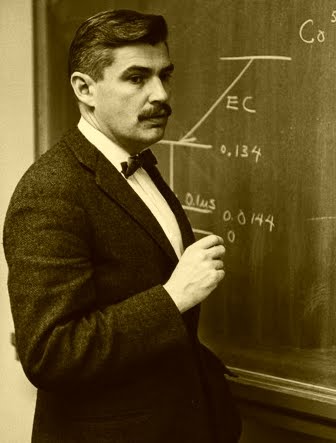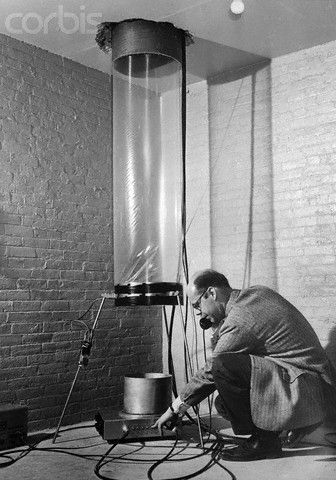<Back to Index>
- Physicist Robert Vivian Pound, 1919
- Physicist Glen Anderson Rebka, Jr., 1931
PAGE SPONSOR

Robert Vivian Pound (May 16, 1919 – April 12, 2010) was an American physicist who helped discover nuclear magnetic resonance and who devised the famous Pound - Rebka experiment supporting general relativity .
Pound was born in Ridgeway, Ontario.
The discovery of NMR won the Nobel Prize in physics in 1952, though, due to the limitation on the number of recipients and the simultaneous discovery of NMR by Felix Bloch's group, Pound's advisor Ed Purcell received the award on behalf of his group at Harvard. Pound received the National Medal of Science in 1990 for his lifetime contributions to the field of physics. Pound was the Mallinckrodt Professor of Physics emeritus at Harvard University. He was a member of the class of 1941 at the University of Buffalo.

Glen Anderson Rebka, Jr. (born 1931) is an American physicist.
Rebka attained a doctorate 1961 at Harvard, where he began study in 1953. Starting from 1961 he was at Yale University and starting from 1970 at the University of Wyoming, where he was from 1983 to 1991 department head of the physics faculty and, since 1997 professor emeritus. In addition to his academic career he did much work as an experimental elementary particle physicist at Los Alamos National Laboratory. At the University of Wyoming he built up the astrophysics faculty.
In 1960 Robert Pound carried out together with his assistant Glen Rebka an experiment, the Pound - Rebka experiment, using the Mössbauer effect to measure the gravitational redshift of the radiation from a gamma source in the gravitation field of planet Earth. Pound and Rebka used at Harvard University the Jefferson tower, which is only 22.6 meters tall. The work was part of Rebka's thesis with Pound as thesis advisor.
Pound and Rebka received in 1965 the Eddington medal of the Royal Astronomical Society.